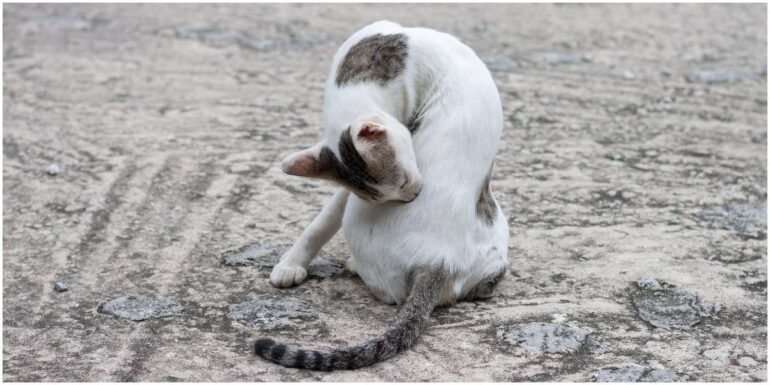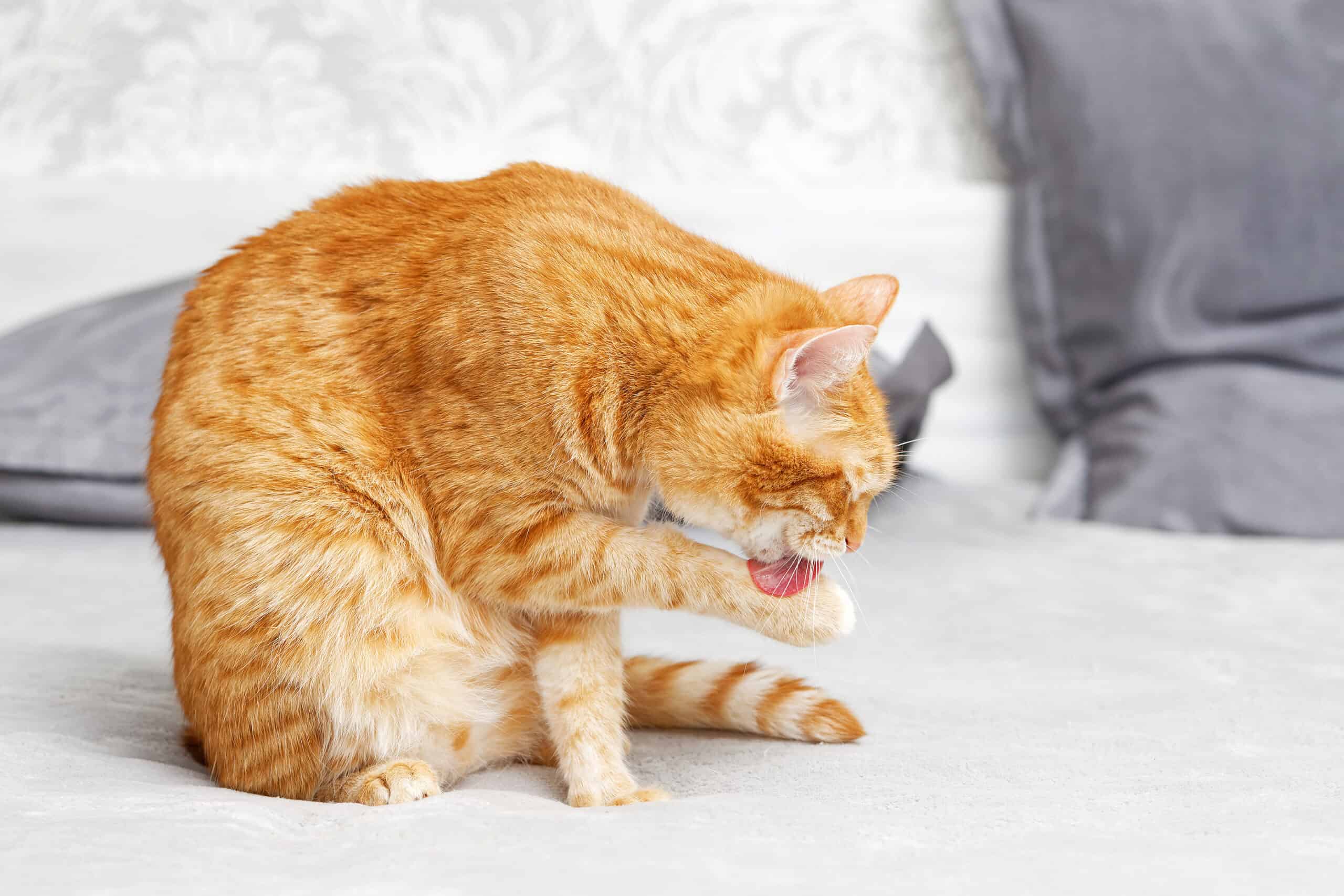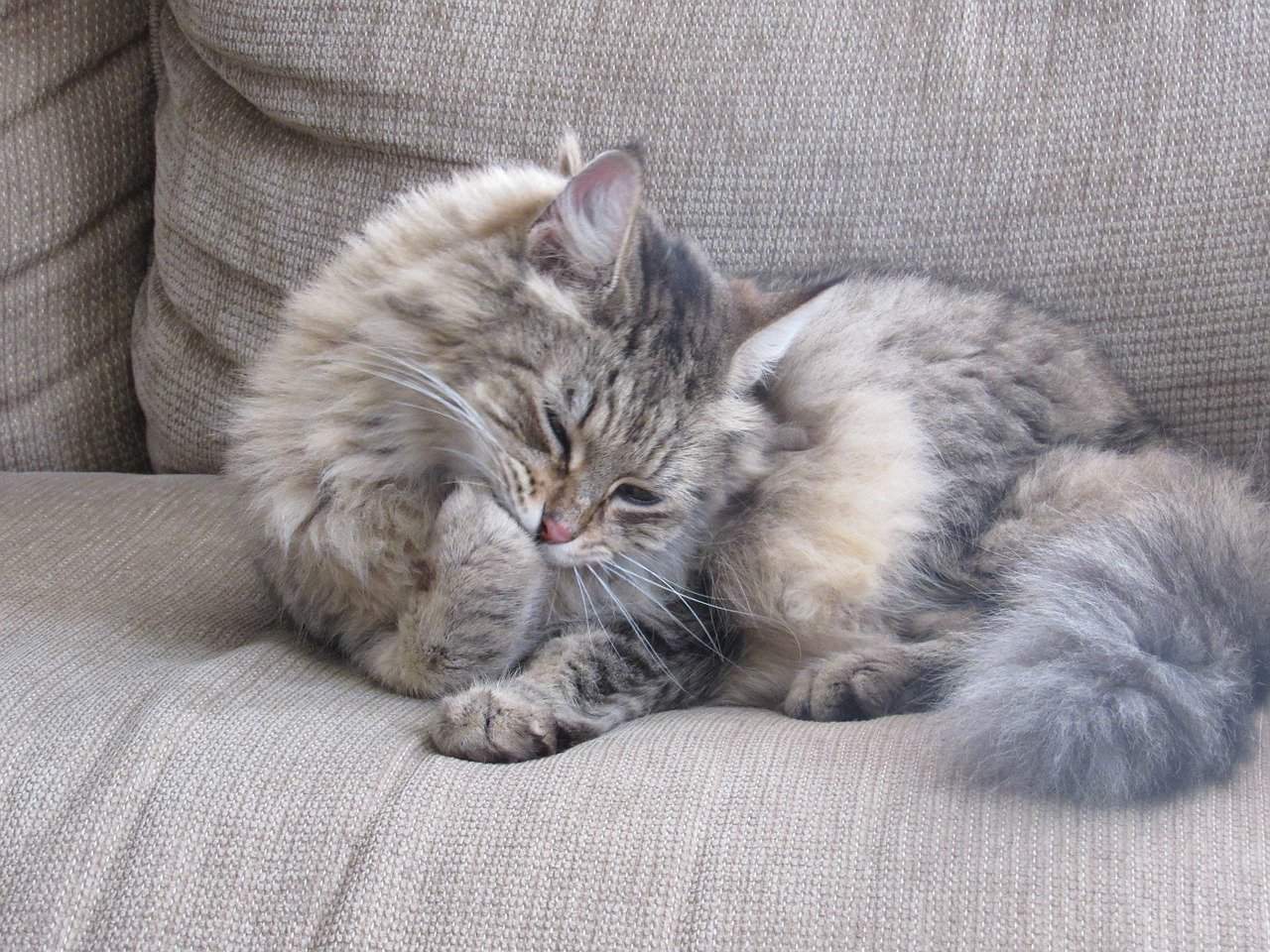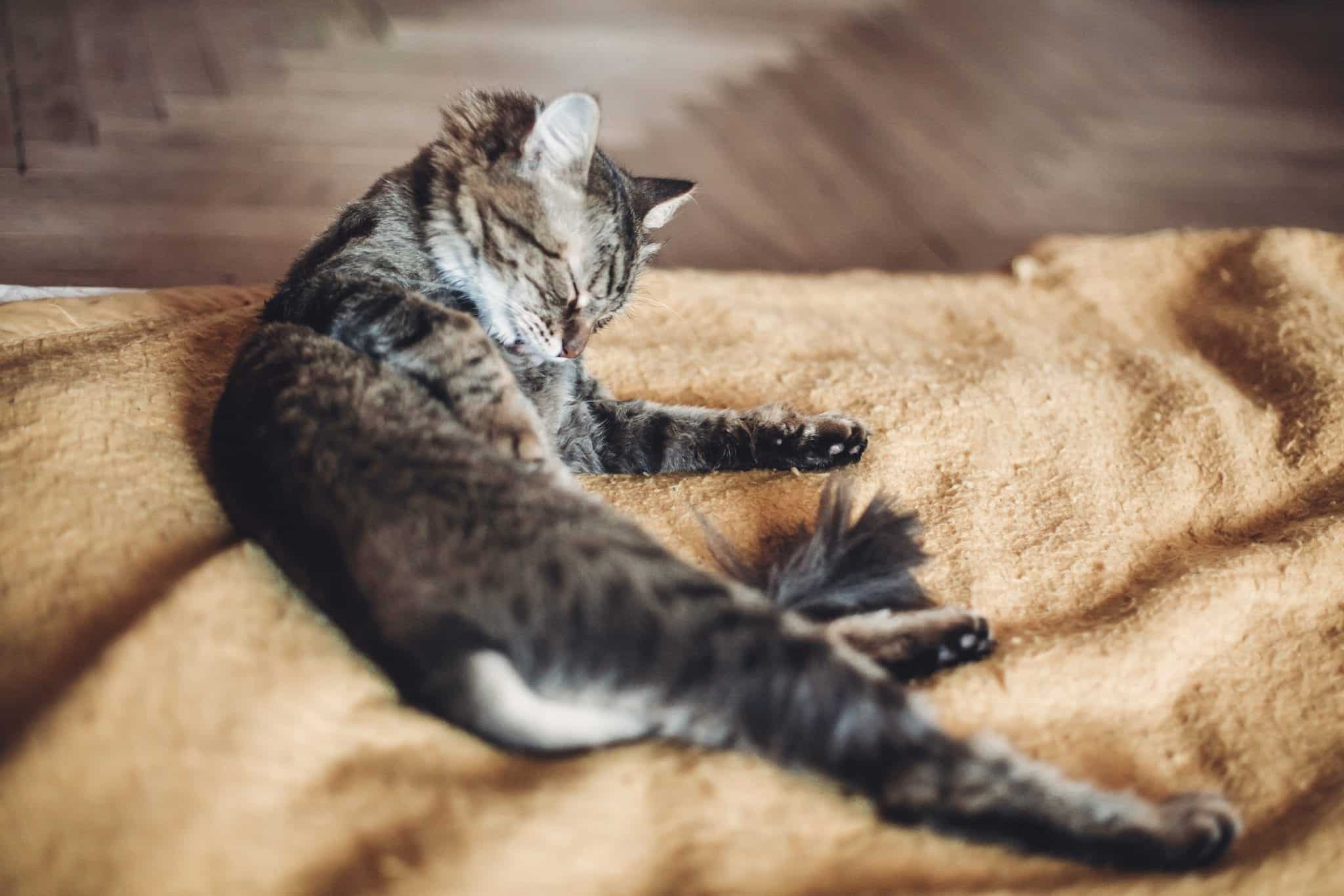Grooming is a natural part of the everyday life of your cat, they like to keep clean and as talked about in “Why Do Cats Have Barbed Tongues?” grooming after meals help take away the scent of the last meal. Grooming also keeps a cat’s coat in a sleek, soft, and shiny condition, but can a cat overgroom? Keep reading to learn more!
Signs of overgrooming
First off, cat grooming is a completely necessary action. As a matter of fact, cats will spend up to 50% of their waking hours a day just grooming themselves. Overgrooming, however, is different. Signs of overgrooming can be observed anywhere over your cat’s body, especially on their stomachs and legs. You may find that the hair in these areas are shorter, thinner, or there is no hair at all. The skin in these areas may also be red or inflamed. You may also find that your cat is just about obsessed with grooming.
Why cats overgroom
Although grooming is a normal behavior, overgrooming to the point of alopecia, or hair loss, is not normal. Your cat may be trying to tell you something important. Cats may start to overgroom for behavioral reasons or medical reasons.
Overgrooming can be seen as a stress reliever in some cats. This is their outlet to deal with stress or anxiety such as tapping a pencil or squeezing a stress ball is for us. If your cat is overgrooming, has anything in their life changed? Perhaps a new member of the family, a move, or even a new laundry detergent can stress a cat out. Your cat is a creature of routines and habits, any change in routine can cause them enough stress to start overgrooming.
Medical reasons such as allergies and fleas can also make your cat overgroom. If your cat’s skin is red, inflamed and they just seem super itchy, they may actually have allergies and are trying to find some relief.
How to help
A cat that is overgrooming is in need of help. Overgrooming can lead to skin infections and definitely hairballs. If you notice your cat grooming, be sure to contact your veterinarian to schedule an appointment. Be prepared to answer questions such as if there have been any changes in your cat’s daily routine.
If your cat is indeed overgrooming due to stress, there are ways to help. Find out what changed and if you are able to reverse it, do so. Otherwise, pheromone therapy may help such as a Feliway diffuser that releases feel-good hormones into the air. If the anxiety is bad enough, your veterinarian can prescribe some anti-anxiety medication for your cat as well.
Allergies are never fun for anyone, even your cat. If your veterinarian finds that this is the problem, they may want to do some additional testing to find out what is causing the allergy and prescribe a medication or steroid to help with the itchy skin. Sometimes cats have food allergies and require a diet with specific ingredients. A medicated bath may also help if their skin in need of soothing.






